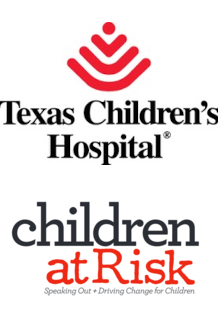Abstract
This ethnography study explored the role of Latino fathers in family life and their children’s education before and during the pandemic. The study also examined the role of Latino leaders and ally leaders in serving Latino fathers and their families in Northwest, Iowa and Southern, Minnesota before and during the pandemic. The sample consisted of 40 Latino fathers from El Salvador, Guatemala, Honduras, Mexico and Nicaragua and 22 leaders of Latino and European American backgrounds. The study utilized different qualitative inquiries including the larger ethnography, testimonios and observations to collect the data. Key findings included that the Latino fathers were moving beyond traditional interpretations of Latino fatherhood and masculinity in particular machismo. Rather the fathers were focused on a new family dynamic and Latino fatherhood that highlighted positive Latino family values and egalitarian beliefs. Another finding demonstrated that the Latino fathers were more actively engaged in their children's lives and education regardless of the circumstances. A key finding demonstrated that the fathers showed resilience before and during the pandemic in efforts to serve their families. The results showed that leaders were actively advocating for the Latino families before and during the pandemic. The study also found that Latino leaders were showing progress in helping rural communities move towards equity, diverse and inclusive for their communities. Implications for future research were provided.
Key Take Away Points
- The importance of modern Latino fatherhood and family dynamics
- Understanding the changing realities of Latino families in the rural United States
- Illuminated the struggles and strengths of Latino and ally leaders in serving Latino families and communities
Author Biography
Dr. Ruben Viramontez Anguiano is Professor and Founding Chair of the Human Development and Family Relations Program in the School of Education and Human Development at the University of Colorado Denver. He has over 30 years of experience of working and researching with Latino families and communities in multiple states. Dr. Melissa Martinez is a public school high teacher and university professor. She has worked with diverse communities for over 25 years in Colorado and Wyoming on aspects of culture, language, and education and families. Dr. Jorge Chavez is an Associate Professor of Human Development and Family Relations at University of Colorado Denver. His research centers on integrating developmental, social, and environmental perspectives toward understanding problem behaviors, crime & violence, and mental health problems with a focus on the intersection of race/ethnicity and social structural disadvantage. Jennifer Jacob-Bellowe is a third year Master of Counseling Student studying to become a Couples and Family Therapist. She received a Bachelor of Science in Human Development and Family Relations from the University of Colorado and was the recipient of the Joseph C. Gallegos Servant Leadership Award. Her research focus is on the lived experiences of underrepresented families and communities.
Acknowledgements
The authors thank all the Latino fathers and the leaders who participated in this study. The authors also thank the Iowa State University College of Human Sciences and the Department of Human Development and Family Studies that sponsored the primary researcher’s sabbatical research project. The authors also thank Dr. Sarah M. Harrison for reviewing the manuscript.
Recommended Citation
Viramontez Anguiano, Ruben; Martinez, Melissa; Chavez, Jorge; Harrison, Sarah M.; and Bellowe, Jennifer Jacob
(2022)
"Pueblos y Ranchos: The role of Latino fathers and community leaders in serving Latino families in rural Northwest Iowa and Southern Minnesota,"
Journal of Family Strengths: Vol. 22:
Iss.
1, Article 3.
DOI: https://doi.org/10.58464/2168-670X.1465
Available at:
https://digitalcommons.library.tmc.edu/jfs/vol22/iss1/3


